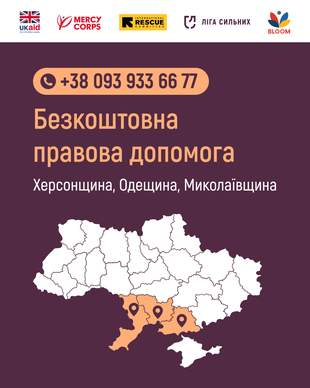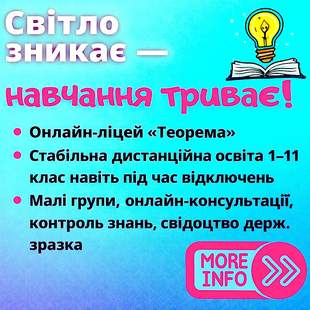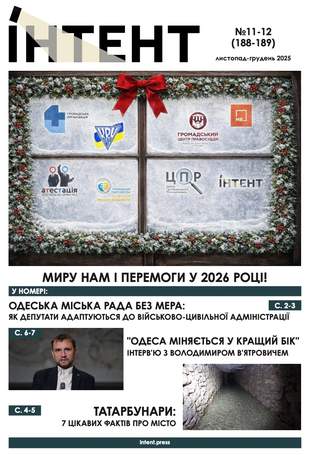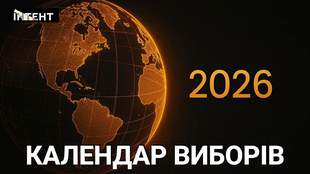Меню
Соціальні мережі
Розділи
Nov. 15, 2024, 9:56 a.m.
Study: Lack of media funding in western and central Ukraine creates risk of "news deserts"
This article also available in English143
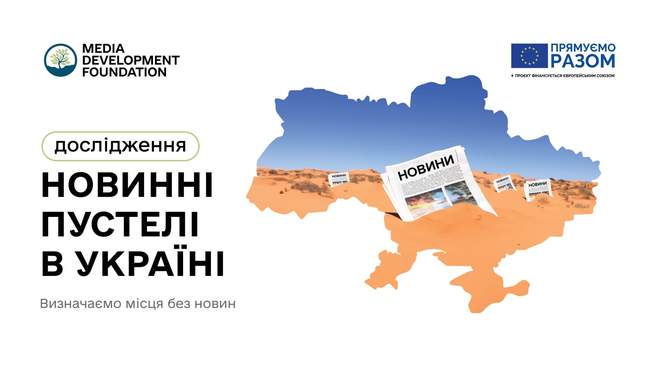
Photo: Media Development Foundation
An analysis by the Media Development Foundation (MDF) showed that out of 61 administrative districts in 13 regions of central and western Ukraine, 46 districts are "informationally unhealthy" or partially healthy. The situation is particularly critical in Chernivtsi and Zakarpattia regions, where not a single healthy district was found.
According to the Media Development Foundation, some data on "news deserts" in these regions have not yet been published.
MDF experts pointed out that media in central and western Ukraine receive less financial support from donors compared to media in the frontline areas. This may exacerbate the problem of "news deserts" - regions with insufficient access to quality local news.

Infographic: Media Development Foundation
The study covers 8 regions of the West (Volyn, Zakarpattia, Ivano-Frankivsk, Lviv, Rivne, Ternopil, Khmelnytsky and Chernivtsi) and 5 regions of the Center (Vinnytsia, Poltava, Kirovohrad, Cherkasy and Dnipro). Due to the lack of close proximity to the war zone, these regions have insufficient funding for media development.
The study showed that at the end of 2023, international financial support in the form of grants accounted for 45% of editorial revenues in the western regions and 50% in the central regions. At the same time, this figure is much higher in the frontline and occupied regions, ranging from 73% in the north to 93% in the east.
The MDF recommended expanding grant and emergency funding programs to support information-vulnerable regions and creating long-term programs to develop local newsrooms, which play a key role in informing communities. Preserving the "information health" of regions is critical for democracy and the development of local communities.
The concept of news deserts originated in media studies in the United States in the early 2000s, when the number of local paper dailies first declined significantly amid the rise of digital-first media. Accordingly, news deserts referred to communities that did not receive enough verified information about local issues and events.
This raised the issue that democracy begins at the local level: people can only actively participate in their community if they have access to verified information.
Intent also contributes to the reduction of news deserts.
The Intent team has provided significant support to the Kherson-based publication Bilozerka.info, helping it to reach a new level. The first contact between the editors took place in 2022 thanks to the NGO Bilozerka Center for Regional Development, which created the Bilozerka.Info website. Before the war, volunteers were responsible for the content of the resource, and in July 2022, Natalia Svyryda became the editor-in-chief of the publication, working independently until the end of the year.
At the beginning of 2023, thanks to the financial and mentoring support of the Intent, the editorial team was able to expand its team by inviting a newswoman, who significantly improved the development of the publication. With the help of the Intent, Bilozerka.info submitted a successful application for a project from the MDF, receiving funding for a year and a half. This allowed the team to expand to 7 people, increase the amount of content, and raise the professional level of the team.
Thanks to this start, the editorial team has become stronger and continues to cooperate with the Intent, having the opportunity to seek advice or consultation. In the future, the Bilozerka.info team plans to implement joint projects with Intent.
"We continue to keep in touch with the team, and we can always ask for friendly advice or professional consultation. I hope that in the future we will have the opportunity to partner and implement some interesting media projects. The intent is about high professionalism and a friendly team of like-minded people interested in developing independent journalism," Natalia Svyryda described her experience of working with the publication.
